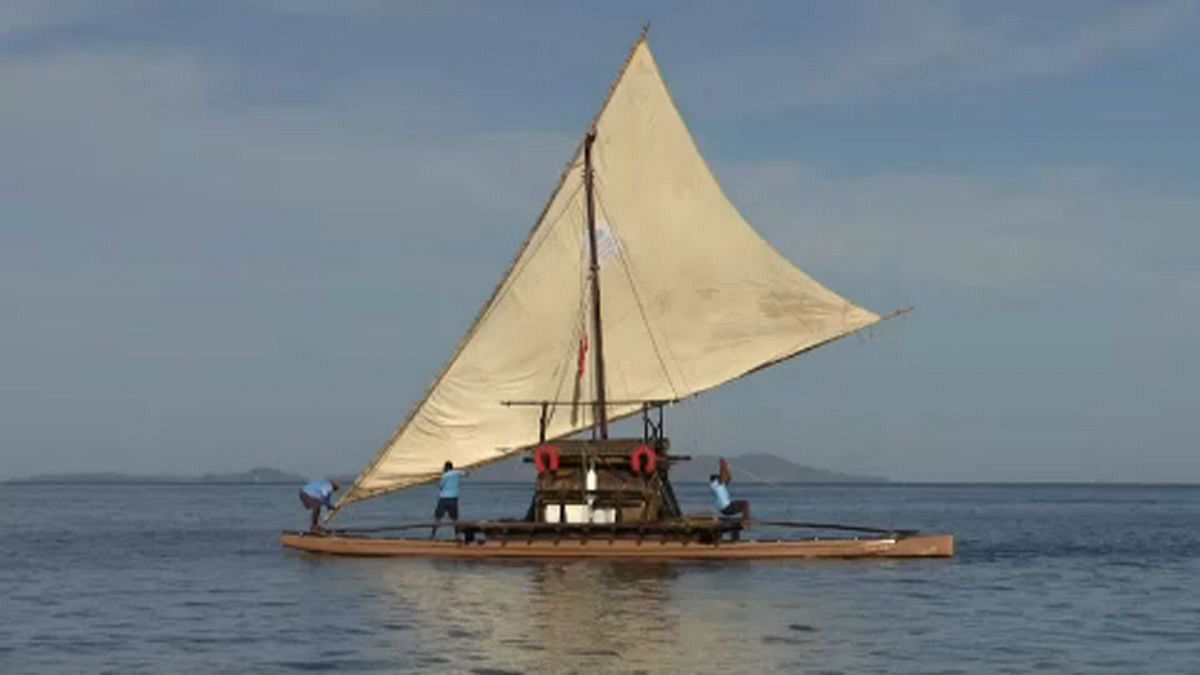Fiji moves entire villages inland as sea levels rise.
Fiji may look like paradise but it is coming to terms with the very real consequences of global warming. Faced with rising temperatures and sea levels, and strengthening storms, the South Pacific archipelago has moved three villages to higher ground and has plans to move another 43.
Graves, as well as homes, are being relocated, but some succumbed to the sea before action could be taken, as local conservationist Moala Tokota’a explained.
“All of us come from low-lying islands. Right there before our eyes it’s there, the evidence of climate change. Graveyards that were inland 10-20 years ago are now under the sea. So it is very, very important to us to help fight the climate change.”
According to UN data, sea levels have risen by 26 centimetres worldwide since the late 19th century. But if global emissions are not slowed down, Fiji could face as much as a metre of sea level rise by the end of this century. This would vastly increase the risk of coastal flooding.
But preparations for climate change are not cheap. A first comprehensive assessment suggests the country must spend the equivalent of its yearly GDP over the next decade.
Prime Minister Frank Bainimarama called for a united front to face the problem.
“We are all in the same boat with this problem that is brought about by climate change. We want to tell the people that, the international community, that we all need to come on board this journey. Otherwise it’s not gonna do us any good”, he said.
Yet, Fiji is throwing open its doors to others. It’s attorney general says the nation is investing tens of thousands of euros in developing a legal framework to help relocate future climate refugees from other Pacific island countries. Fiji’s population numbers 900,000 across more than 300 islands, some of which have mountains rising to 1,300 metres.
The Pacific state of Kiribati bought some 6,000 acres (2,400 hectares) of forest land on Fiji in 2014, to be used for growing crops, or to provide a refuge if seas rise to levels that would hamper human habitation.
So-called peripheral legal issues are being explored, such as how to grant residency and citizenship. But another concern is whether or not a nation’s exclusive economic zone, which stretches 200 nautical miles offshore, is reduced if a remote, outlying island is literally washed off the map.
